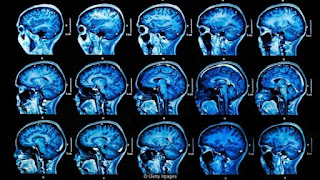Complications of Multiple Sclerosis
Because the effects of nerve injury are widespread, the many
complications can be very severe and affect all parts of the body. Although not
all individuals with multiple sclerosis (MS) experience all of the following
complications, any of them can negatively affect the individual's quality of
life.
- Fatigue: Fatigue is one of the most common and debilitating MS symptoms and affects at least two thirds of patients with MS. Fatigue causes a general lack of energy that significantly limits daily functioning regardless of any neurologic symptoms or specific muscle weaknesses.
- Loss of mobility and spasticity: Nearly every individual with MS loses some mobility, which may take the form of impaired motor control, muscle weakness, impaired balance, tremor, and, importantly, spasticity. Spasticity is one of the primary symptoms of MS.
- Pain: About two-thirds of MS patients experience pain at some point during the course of the disease and 40% are never pain free.
- Bowel dysfunction: Bowel dysfunction, which can include constipation or faecal incontinence, is a serious problem for many MS patients. Constipation may be caused by the disorder itself or by medications used to treat spasms or other symptoms. Diarrhoea may also occur.
- Sexual dysfunction: Sexual dysfunction is a common problem in those with MS, occurring in over 70% of patients. Men are likely to have impotence and women have problems with vaginal lubrication, both leading to sexual dysfunction. It appears to be highly associated with urinary dysfunction.
- Urinary urgency or hesitancy: Individuals with urinary urgency feel the need to urinate frequently and urgently and initiating difficulty in urination respectively.
- Incontinence: Incontinence is the loss of bladder control. Sometimes MS will disrupt the nerve signals sent to the body parts that control urine movement allowing urine to be expelled involuntarily.
- Nocturia: Individuals with nocturia must awake frequently during the night to go to the bathroom.
- Visual problems: Vision problems that can occur with MS include: blurred or dimmed vision; pain with eye movement; blind spots, particularly involving central vision; color blindness; double vision; and nystagmus, or vision that jumps uncontrollably.
- Difficulty swallowing: One-third to one-half of MS patients experience difficulty in chewing or swallowing, problems that may be caused or made worse by many MS medications.
- Speech and hearing problems: Problems in speech may occur because of difficulty in controlling the quality of the voice and articulating words.
- Lung problems: As the muscles that control breathing weaken, the ability to cough is impaired and the individual with MS is at higher risk for pneumonia and other complications in the lungs.
- Osteoporosis: Osteoporosis, or the loss of bone density, and subsequent fractures are a common problem among individuals with MS.
- Cognitive problems: Cognitive problems, such as having trouble concentrating and solving problems, affect about half of MS patients.
- Depression: Between 40-60% of MS patients suffer from depression at some point over the course of the illness, and studies have reported risks for suicide ranging from 3-15%.




Comments
Post a Comment